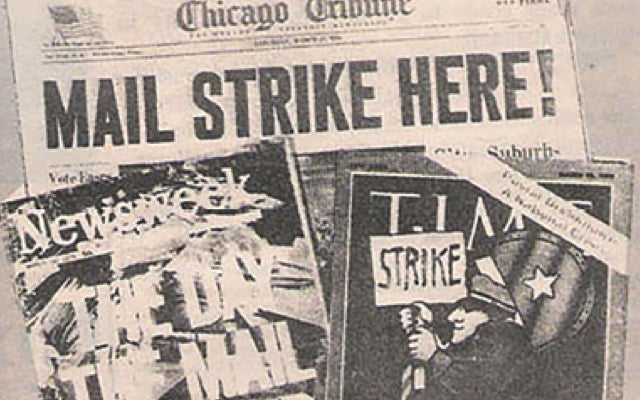
March 18, 1970: Postal Workers Strike
History Site
The first mass work stoppage in the 195-year history of the Postal Service began on March 18, 1970, with a walkout of letter carriers in Brooklyn and Manhattan who were demanding better wages.

The first mass work stoppage in the 195-year history of the Postal Service began on March 18, 1970, with a walkout of letter carriers in Brooklyn and Manhattan who were demanding better wages.
Ultimately, 210,000 (in 30 cities) of the nation’s 750,000 postal employees participated in the wildcat strike.
The first mass work stoppage in the 195-year history of the Postal Service began on March 18, 1970, with a walkout of letter carriers in Brooklyn and Manhattan who were demanding better wages.
Women Have Always Worked: Fighting for Equality: 1950–2018.
An exploration from an online edX course.
Overall mine wars resources, a major collection.
Domestic work is the work that makes all other work possible. Together, we can win the protections and recognition that this vital American workforce needs. Join us today!
In 2007, the National Education Association celebrated its 150th year. Over this time, NEA has been a driving force in education at all levels.
This site brings together information about the history and ongoing influence of newspapers and periodicals published by unions, labor councils, and radical organizations in the Pacific Northwest. Labor newspapers have been a critical part of American labor movements since the early 19th century and an…
The Southern Oral History Program Interview Database provides detailed descriptions of interviews in the Southern Oral History Program Collection (04007). The interviews in this collection were conducted or collected under the auspices of the Southern Oral History Program in the Center for the Study of…
In 1907, Grace Strachan, a school principal and leader of New York’s Interborough Association of Women Teachers (IAWT), explained the significance of the organized teachers’ campaign. “I don’t think any of us are working simply for our own interests,” she offered.
The Knights of Labor was the largest and most extensive association of workers in 19th century America. Organized in 1869, the movement grew slowly in the 1870s, then surged in the 1880s, reaching a peak membership approaching one million in 1886-1887 with Local Assemblies spread across the country in more than 5,600 cities and towns.
This website includes the records of the International Brotherhood of Teamsters and a collection of six oral histories from the National Education Association (NEA). Visit site